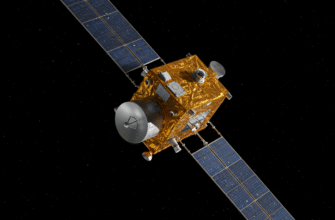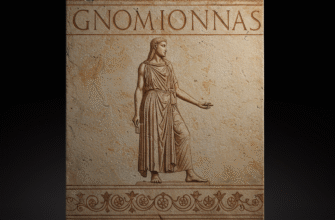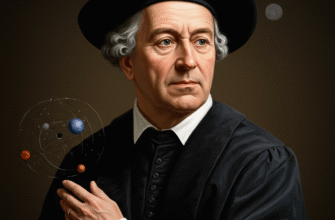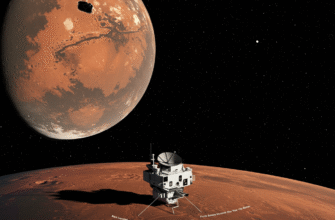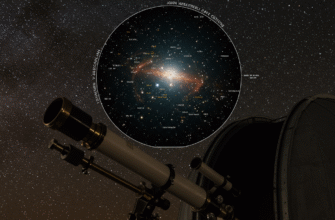Look up into the velvet expanse of the night sky, particularly during the winter months in the Northern Hemisphere, and you might spot two bright stars, seemingly inseparable. These are Castor and Pollux, the celestial markers of the constellation Gemini, the Twins. But their story is far more than just a pattern of distant suns; it is a timeless epic of brotherhood, sacrifice, and a love so profound it defied even death itself. Their legend, woven into the fabric of Greek and Roman mythology, continues to resonate, a testament to an unbreakable bond.
The Miraculous Birth of Heroes
The saga of Castor and Pollux, known collectively as the Dioscuri, meaning sons of Zeus, begins with a queen and a god in disguise. Their mother was Leda, the beautiful Spartan queen, wife of King Tyndareus. Zeus, king of the gods, smitten by Leda’s beauty, approached her in the guise of a graceful swan, seeking refuge from a pursuing eagle. On the very same night, Leda also lay with her mortal husband, Tyndareus. The result of these dual unions was extraordinary: Leda laid two eggs. From one egg hatched Helen, later of Troy fame, and Clytemnestra; from the other, Castor and Pollux.
This divine and mortal parentage bestowed upon the twins a crucial difference. Pollux, fathered by Zeus, was immortal, possessing divine strength and resilience. Castor, son of the mortal Tyndareus, was himself mortal, albeit a hero of exceptional skill. Despite this fundamental disparity in their natures, their bond was immediate and absolute. They were raised together in the Spartan court, inseparable in play, training, and ambition, never letting the shadow of differing destinies come between them.
A Bond Forged in Adventure
As they grew into manhood, their individual talents became strikingly apparent, yet perfectly complementary. Castor emerged as a peerless horseman, renowned for his ability to tame and ride the most spirited steeds. His skill in equestrian arts was unmatched. Pollux, on the other hand, was a formidable boxer, his fists like iron, his agility and power making him an undefeated champion in pugilism. Together, they were a force to be reckoned with, their combined strengths making them celebrated heroes across the Hellenic world.
Argonauts and Rescuers
Their heroic exploits were numerous. They were among the valiant crew of the Argo, sailing with Jason on the perilous quest for the Golden Fleece. During this epic voyage, Pollux famously demonstrated his boxing prowess by defeating Amycus, the brutal king of the Bebryces, in a match that saved his fellow Argonauts. The twins were also revered as protectors of sailors. It was said that during fierce storms at sea, ethereal lights, sometimes seen on the masts of ships, now known as St Elmos fire, were manifestations of Castor and Pollux, signaling their divine protection and the imminent calming of the tempest.
Closer to home, they embarked on a daring mission to rescue their sister, Helen. Years before Paris spirited her away to Troy, Helen had been abducted by Theseus, the legendary king of Athens. Castor and Pollux, displaying unwavering familial loyalty, led a Spartan army into Attica, successfully located their sister, and brought her back home, cementing their reputation as brave and determined protectors of their kin.
The Fateful Quarrel
Despite their heroic stature and divine favor, tragedy was not to be entirely averted. The exact circumstances of their final, fatal adventure vary in ancient accounts, a common feature of oral traditions evolving over centuries. One prominent version tells of a dispute with their cousins, Idas and Lynceus, sons of Aphareus. The quarrel, some say, arose over the division of cattle they had raided together. Others attribute the conflict to rivalry over Phoebe and Hilaeira, the Leucippides, daughters of Leucippus, who were betrothed to Idas and Lynceus but desired by or eloped with Castor and Pollux.
Whatever the precise cause, the disagreement escalated into a violent confrontation. Lynceus, gifted with extraordinary sight, spotted Castor hiding in ambush, perhaps in a hollow oak tree. In the ensuing fierce battle, the mortal Castor was struck down, receiving a fatal wound from Idas. Pollux, witnessing his beloved brothers fall, was overcome with rage and grief. He immediately avenged Castor, slaying Lynceus. Zeus himself then intervened, striking Idas down with a thunderbolt to save his immortal son, Pollux, from further harm.
A Brother’s Unbreakable Love
The death of Castor plunged Pollux into inconsolable despair. His immortality, once a divine gift, now felt like an unbearable curse, for it meant an eternity without his other half. He could not imagine an existence where Castor was confined to the grim, shadowy realm of Hades while he walked among the gods on Mount Olympus. His grief was so profound, so utterly consuming, that he pleaded with his father, Zeus, to allow him to die as well, so he could join Castor in the underworld.
Zeus, moved by Polluxs unwavering devotion and the depth of his sorrow, was faced with a dilemma. He could not make the mortal Castor fully immortal, nor could he revoke Polluxs divine nature. Instead, he offered a unique compromise, a testament to the extraordinary bond between the brothers. Pollux could choose to spend all his time on Olympus, living in eternal bliss, or he could share his own immortality with Castor. This sharing meant they would spend alternate days together: one day in the darkness of Hades, the underworld, and the next among the radiant gods on Mount Olympus. Without a moments hesitation, Pollux chose the latter. He would rather share every experience, even the gloom of Hades, with his brother than enjoy eternal life alone.
Immortalized Among the Stars
This ultimate act of brotherly love so impressed Zeus that he decided to honor their incredible bond in a more permanent and visible way. He took the twins and placed them together in the heavens as the constellation Gemini. There, they would shine side by side for eternity, a celestial monument to their devotion. The two brightest stars in the constellation bear their names: Castor, Alpha Geminorum, and Pollux, Beta Geminorum. Though named Alpha and Beta, Pollux is actually the brighter of the two stars, a subtle astronomical nod, perhaps, to his enduring divine light shared with his brother.
The constellation Gemini thus became a powerful symbol of brotherhood, loyalty, and the idea that some bonds are so strong they can transcend even the finality of death. Sailors continued to look to them for protection, and their story was told and retold, inspiring art, literature, and reverence for centuries. The image of the twins, often depicted with horses or star capped, became a common motif in Greek and Roman art.
The Dioscuri, Castor and Pollux, are prominent figures in Greek and Roman mythology, celebrated for their courage and inseparable bond. Their story culminates in their transformation into the constellation Gemini, easily recognizable in the night sky. The two main stars, Castor and Pollux, serve as a nightly reminder of their shared destiny, forever linked in the celestial sphere. Their cult was particularly strong in Sparta and Rome, where they were seen as patrons of athletes and protectors in battle.
The tale of Castor and Pollux is more than just an ancient myth; it is a deeply human story set against a backdrop of gods and monsters. It explores themes of love, loss, sacrifice, and the enduring power of connection. When we gaze upon the twin stars of Gemini, we are not just observing distant celestial bodies; we are connecting with a narrative that has captivated humanity for millennia, a story that reminds us of the profound strength found in unwavering loyalty and the eternal nature of true brotherhood. Their light, journeying across unimaginable distances, carries with it the echo of a love that chose to share both darkness and light, forever together.

